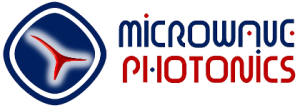Microwave Photonics is among the key industry partners involved in the successful completion of DE-QOR, a German collaborative research project aimed at defending against cybersecurity risks posed by quantum computers. Led by Adva Network Security and funded by the Federal Ministry of Education and Research (BMBF), the three-year initiative brought together industry partners and academic institutions including Leibniz University Hannover, Ludwig Maximilian University of Munich, and the Karlsruhe Institute of Technology.
DE-QOR focused on developing innovative components and subsystems, culminating in the demonstration of a next-generation Continuous Variable Quantum Key Distribution (CV-QKD) system. Designed for seamless integration into commercial telecom networks, the system leveraged a modular, open architecture to enable cost-effective, scalable, and certifiable quantum-safe encryption.
The project showcased the practical viability of quantum-safe security using commercial components. This approach not only lowers deployment costs but also broadens access to quantum-secure technologies.
In the BMBF-funded project DE-QOR (grant number: 16KISQ055), Microwave Photonics GmbH developed the “Single-Channel Coherent Receiver,” which serves as the physical interface between the received optical quantum signal and the electronics for further signal processing on the receiver side of the CV-QKD system. As such, it is one of the key components of the CV-QKD receiver module. In the already launched follow-up project SEQUIN (also funded by BMBF, grant number: 16KIS2133), Microwave Photonics is now developing a fully integrated “Dual-Polarization I/Q Coherent Receiver” for the CV-QKD system.
The final tests integrated Adva’s ConnectGuard™ encryption solution, which uses quantum-generated keys for real-time secure data transmission over fiber infrastructure. With FPGA-based real-time signal processing and standardized interfaces, the project demonstrated the feasibility of scalable and cost-efficient QKD implementations.
The disaggregated, modular system supports innovation and ensures interoperability, standing in contrast to proprietary QKD solutions. The project, including its final demonstration at LMU Munich, laid the groundwork for certification and large-scale deployment, reinforcing Germany and Europe’s leadership in quantum-secure communication.


